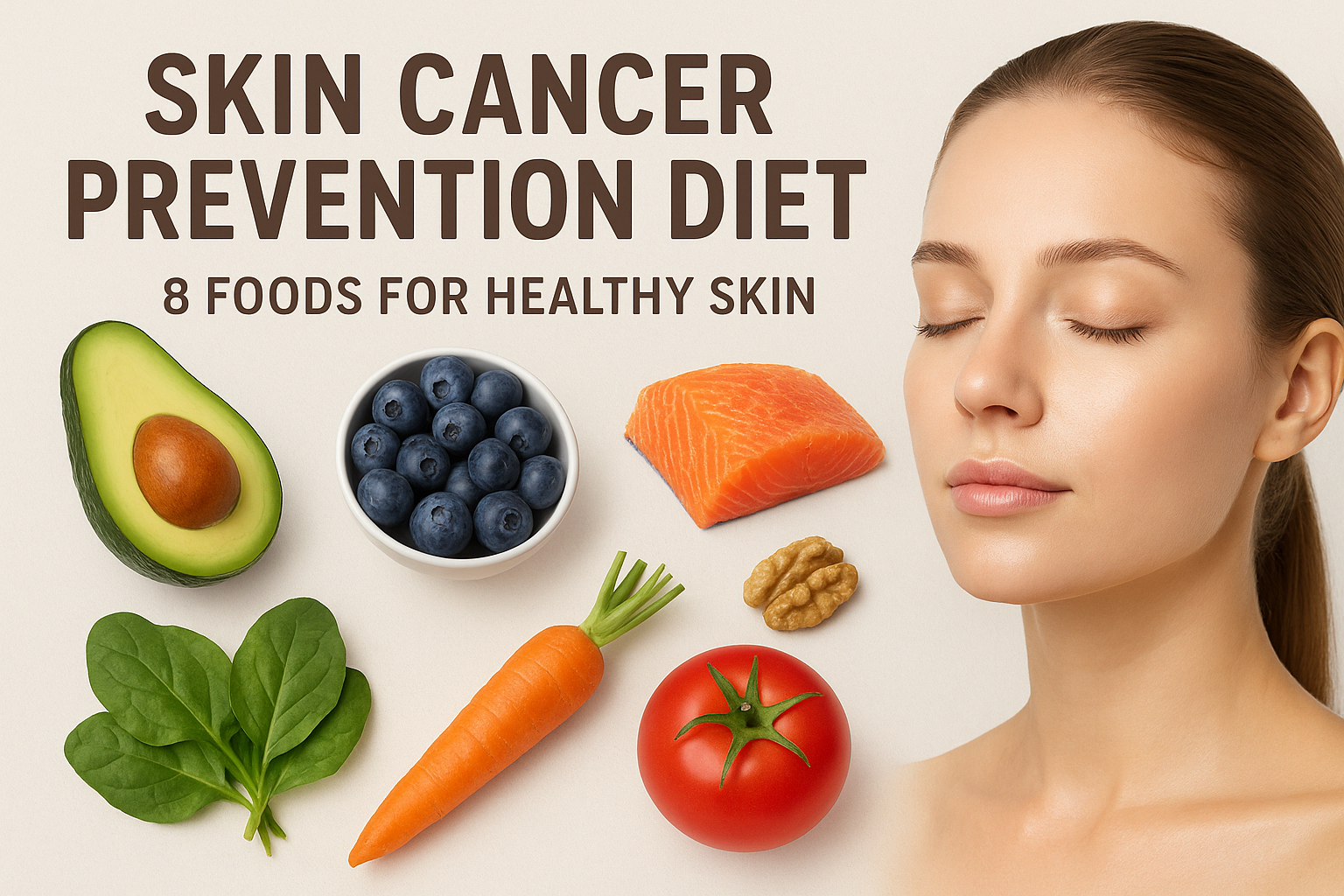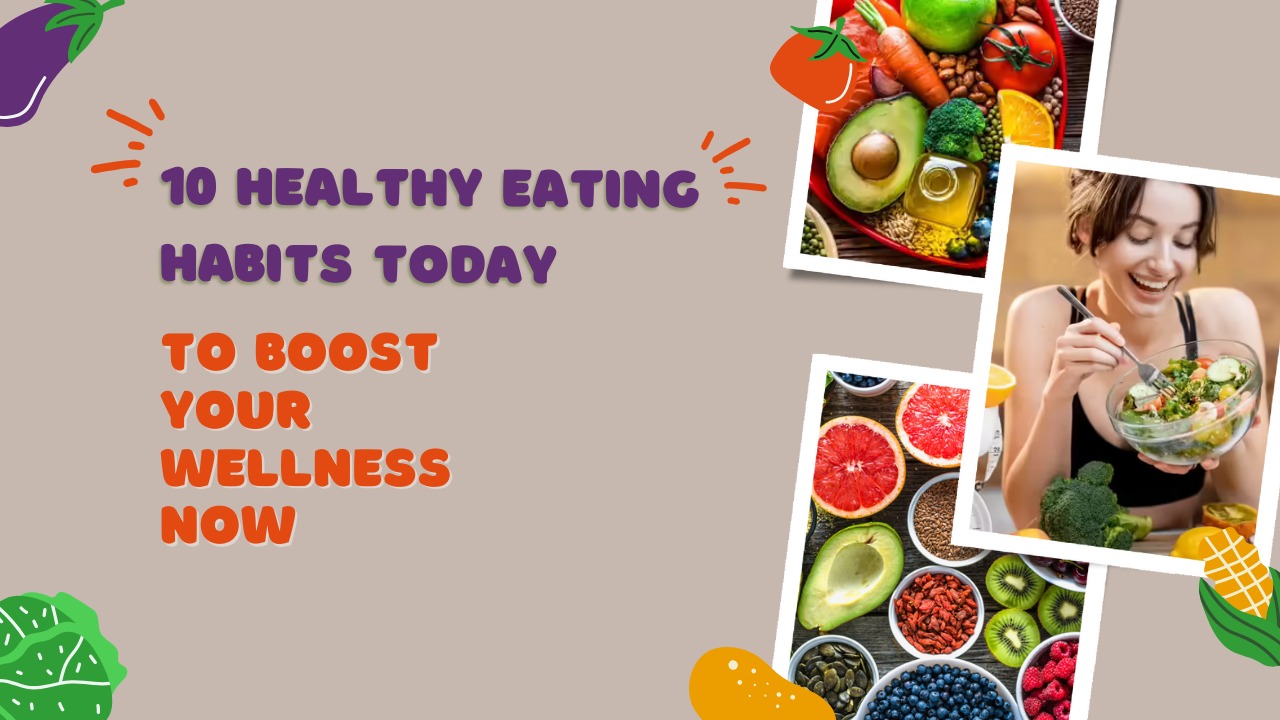Skin cancer is one of the most common types of cancer around the world. While using sun protection like wearing protective clothing, staying in the shade, and applying broad-spectrum sunscreen is very important, your diet may also play a helpful role in protecting your skin. Eating the right foods won’t replace sunscreen or regular skin checks, but it can give your body extra support.
Recent research suggests that certain nutrients found in everyday whole foods might help your skin respond better to sun exposure. Antioxidants, anti-inflammatory compounds, and important vitamins and minerals can reduce damage to skin cells caused by UV rays.
These nutrients may help repair DNA damage, boost your skin’s natural defense system, and lower inflammation. Adding more colorful fruits, vegetables, nuts, and seeds to your meals can be a simple and natural way to support your skin health from the inside out while continuing to follow sun safety practices.
This article explores eight top dietary components (and friendly tips) that may play a role in reducing skin cancer risk, plus practical meal ideas and broader dietary strategies for everyday life.
Beta‑Carotene‑Rich Orange & Deep‑Orange Produce
(e.g. carrots, sweet potatoes, cantaloupe, apricots)
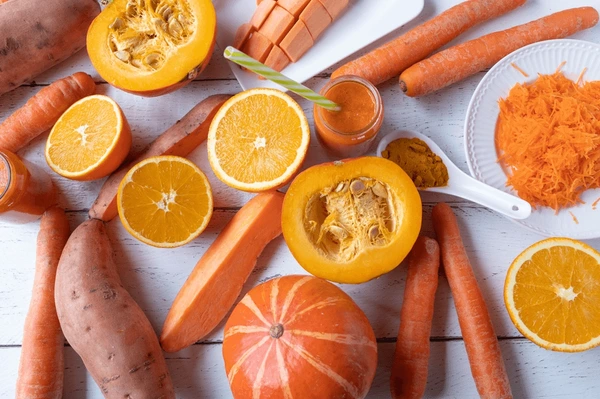
Why it matters: Beta-carotene is a powerful nutrient that turns into vitamin A in the body. This vitamin plays a key role in boosting the immune system and helping cells repair themselves. These actions are especially important when it comes to protecting the skin from damage caused by sun exposure.
Including beta-carotene-rich foods like carrots, sweet potatoes, and leafy greens in your meals may help reduce sun sensitivity. This means your skin may be less likely to burn or react badly when exposed to sunlight.
A diet high in beta-carotene is often linked to a lower risk of certain cancers, including skin cancer. As part of a balanced skin cancer prevention diet, adding these colorful vegetables can support your body’s natural defenses and keep your skin healthier over time. It’s a simple way to help protect your skin while still using sunscreen and practicing other sun-safe habits.
Key foods: Carrots, sweet potatoes, mangoes, cantaloupe, apricots—especially deep orange varieties. Organically grown carrots are recommended to minimize pesticide exposure
Serving tips:
Breakfast: carrot‑orange smoothie with mango and leafy greens.
Roasted sweet potato wedges with spices mid‑day.
Snack on dried apricots or cantaloupe slices.
Lycopene‑Loaded Red & Pink Foods
(e.g. tomatoes, watermelon, pink grapefruit, papaya, guava)
Protection mechanism: Lycopene is a strong antioxidant that helps protect the skin from harmful UV rays. It works by absorbing UV light, which helps limit sunburn and reduce inflammation in the skin. This makes it an important part of protecting your skin from sun damage over time.
One study published in the British Journal of Dermatology found that people who ate tomato paste regularly for 10 weeks were 40% less likely to get sunburned compared to those who didn’t. This shows how lycopene-rich foods can naturally improve the skin’s resistance to the sun.
Adding tomatoes, watermelon, and pink grapefruit to your meals can support a skin cancer prevention diet. These foods are easy to include in salads, sauces, or snacks and may help protect your skin from the inside out when combined with sunscreen and other safe sun habits.
Supporting role: While large‑scale human trial data on skin cancer prevention are limited, animal and small human studies point to potential benefit
Daily ideas:
Cooked tomato sauce or paste inside lentils, eggs, soups.
Watermelon and pink grapefruit salad with mint.
Papaya smoothie with flaxseed oil.
Omega‑3 Fatty Acids
(e.g. salmon, sardines, mackerel; vegetarian sources: flaxseed, walnuts)
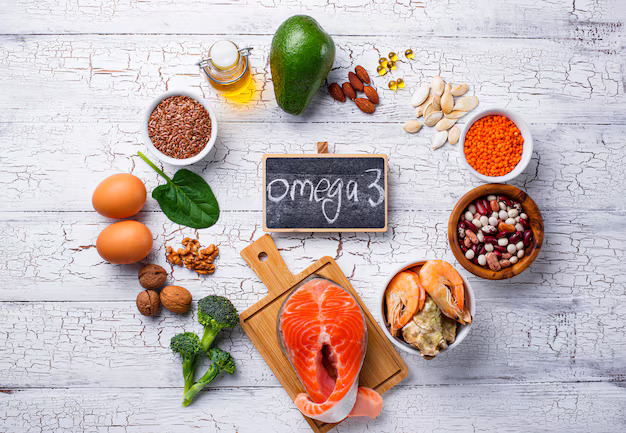
Why eat them: Omega-3 fatty acids are healthy fats that can help lower inflammation in the body. This is important because inflammation plays a big role in skin damage caused by the sun. By reducing inflammation, omega-3s can help protect the skin and support overall skin health.
These fats also help block COX-2, an enzyme that is linked to the development and growth of tumors. Slowing down this enzyme may reduce the chances of harmful skin changes that lead to cancer. Omega-3s may also slow the start of UV-related skin damage.
Including foods rich in omega-3s, like fatty fish, flaxseeds, and walnuts, can strengthen a skin cancer prevention diet. These foods are not only good for your heart but also offer extra protection for your skin. When paired with regular sun protection, they offer an added layer of defense against long-term skin damage.
Fish vs plant sources: Fatty fish like salmon also provide vitamin D and carotenoid astaxanthin (another antioxidant), while flaxseed and walnuts are helpful plant‑based omega‑3 sources
Meal plans:
Grilled salmon with leafy greens and quinoa.
Mackerel salad with walnuts and cabbage slaw.
Chia‑flax pudding sprinkled with walnuts daily.
Green Tea (Polyphenols / EGCG)
Active compound: EGCG, or epigallocatechin gallate, is a powerful antioxidant found in green tea. Along with other polyphenols, it helps fight inflammation and supports the skin’s ability to protect itself from harmful UV rays. These compounds are known for their protective effects on cells and tissues.
Lab and small clinical studies suggest that EGCG can help repair DNA damage caused by sun exposure. It may also slow the growth of tumor cells, offering an added layer of defense against skin cancer. These findings point to its potential in reducing the risk of melanoma, a serious form of skin cancer.
Adding green tea and other polyphenol-rich foods like berries and dark chocolate to your meals can help build a strong skin cancer prevention diet. These foods provide natural support for your skin and work best when combined with daily sun protection and regular skin checks.
Consumption advice:
Drink 4–6 cups of freshly brewed green or black tea daily, without sugar, for maximum benefit
Matcha powders or cooled tea can be added to yogurt or smoothies.
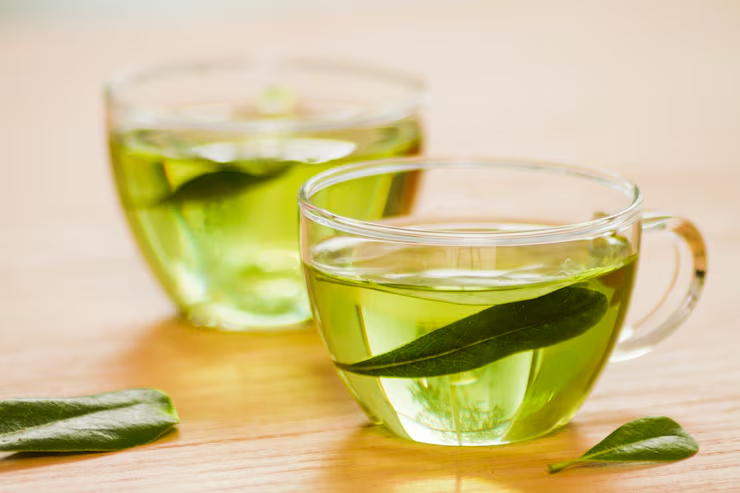
Sulforaphane & Indole‑3‑Carbinol (Cruciferous Vegetables)
(e.g. broccoli, broccoli sprouts, kale, cabbage, cauliflower)
Anti‑cancer effect: Sulforaphane, a compound found in broccoli and other cruciferous vegetables, helps activate the body’s natural antioxidant and detox systems. These processes are important for protecting skin cells from damage caused by UV exposure and environmental toxins.
Another compound, indole-3-carbinol (I3C), also found in cruciferous vegetables, has shown promise in lab studies for fighting melanoma. It helps trigger apoptosis, which is the natural process of removing damaged or abnormal cells. I3C may also block a key cancer-related signal called BRAF V600E, often found in melanoma cases.
Including broccoli, cabbage, and Brussels sprouts in your meals can help build a strong skin cancer prevention diet. These vegetables are easy to add to stir-fries, salads, or side dishes and offer powerful support for skin health. When combined with sun protection, they offer natural ways to defend the skin from long-term UV damage.
Why broccoli sprouts matter: They are particularly rich in sulforaphane; eating them raw preserves about 90% of the active compound
Serving ideas:
Add raw broccoli sprouts to wraps or smoothies.
Steam kale or cabbage lightly.
Stir‑fry mixed cruciferous veggies with garlic and olive oil.
Vitamin E & Selenium
(e.g. nuts, seeds, avocado, mushroom, leafy greens, Brazil nuts)
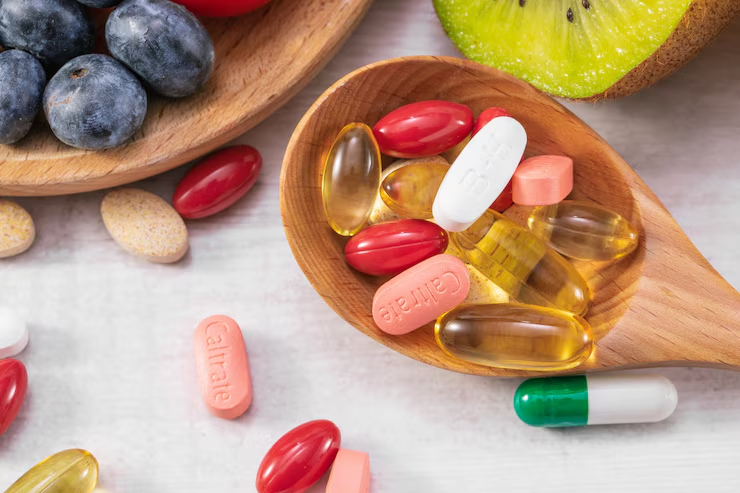
Vitamin E: Vitamin E is a membrane antioxidant that helps protect and stabilize skin cells. It plays a key role in healing damage caused by UV rays and supports the skin’s natural ability to repair itself. This makes it an important nutrient for keeping skin healthy and strong.
Vitamin E also helps reduce inflammation, which can build up in the skin after sun exposure. By lowering this inflammation, it helps prevent long-term damage that can lead to skin issues, including the risk of skin cancer.
Foods rich in vitamin E, such as almonds, sunflower seeds, spinach, and avocado, can be great additions to a skin cancer prevention diet. These foods are easy to include in snacks or meals and support skin from the inside out. When paired with daily sun protection, they help form a more complete defense against UV-related skin damage.
Selenium: A mineral shown in large observational studies to reduce cancer risk and mortality by ~30–40% with higher intake; just one–two Brazil nuts a day covers daily selenium need
Ideas:
Snack on soaked almonds and a Brazil nut daily.
Blend avocado with kale‑spinach salad and sunflower seeds.
Include shiitake mushrooms in a stir‑fry or soup.
Berries & Other Polyphenol‑Rich Fruits
(e.g. strawberries, blueberries, raspberries, blackberries, pomegranate, grapes)
Polyphenols & ellagic acid: Foods high in phenolic antioxidants offer strong protection for your skin. These compounds help neutralize free radicals—unstable molecules that can damage skin cells and lead to premature aging or cancer. By reducing this damage, phenolic antioxidants support healthier skin over time.
They also help repair DNA that has been harmed by UV rays. This is important because damaged DNA in skin cells can increase the risk of abnormal cell growth. These antioxidants may also slow the spread of cancer cells, making them valuable for long-term skin protection.
Berries, olives, dark chocolate, and certain herbs are rich in these protective compounds and can be great additions to a skin cancer prevention diet. Including these foods regularly supports the body’s natural defenses, working alongside sunscreen and safe sun habits to protect your skin from UV-related harm.
Real‑world benefit: Studies show ellagic acid in raspberries may induce apoptosis in skin‑cancer cells; blueberries and strawberries helped reduce oxidative stress in lab models
Use tips:
Mix berries into oatmeal or yogurt breakfasts.
Pomegranate arils as salad garnish.
Freeze berries for ice‑cold summer smoothies.
Olive Oil & Avocado – Healthy Fats and Antioxidants
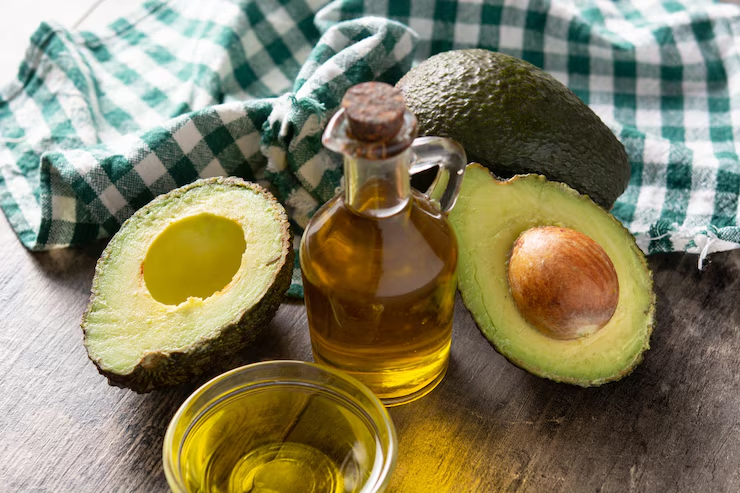
Monounsaturated fats: Healthy fats like those found in olive oil and avocado play an important role in keeping your skin strong. They help maintain the skin barrier, which protects against dryness, UV damage, and environmental stress. A strong skin barrier is key for keeping your skin healthy and resilient.
These fats also help reduce inflammation in the body, which supports better skin repair and reduces the risk of long-term damage. They improve the absorption of important nutrients like vitamins A, E, and carotenoids, all of which help protect the skin.
Olive oil is rich in polyphenols, while avocados provide vitamin E, vitamin C, carotenoids, and glutathione. Including these in your daily meals is a smart way to build a strong skin cancer prevention diet. When paired with sunscreen and other sun-safe habits, these foods support skin health from the inside out.
Mediterranean diet synergy: A whole‑food approach centered on olive oil, fish, vegetables and nuts is linked to lower overall cancer risk—and may support skin‑health outcomes even in sun‑high environments
Ways to enjoy:
Dress salads with olive oil, lemon and herbs.
Add avocado slices to sandwiches, smoothies, or on toast.
Use extra‑virgin olive oil for cooking, dips, or soups.
🍽️ Meal Plan Ideas: Applying the Top 8 Foods Daily
Sample One‑Day Skin‑Protective Menu
| Meal | Ingredients/Notes |
|---|---|
| Breakfast | Smoothie: spinach, carrot, mango, berries, flaxseeds, green tea (iced or matcha powder). |
| Mid‑morning | Handful of almonds, 1 Brazil nut, slices of papaya or grapefruit. |
| Lunch | Salad: kale, broccoli sprouts, tomato, avocado, walnuts; olive oil & lemon dressing. |
| Afternoon Snack | Green tea / iced matcha, with sliced bell pepper and carrot sticks. |
| Dinner | Grilled salmon or mackerel, roasted sweet potato, steamed broccoli & cauliflower with garlic. |
| Dessert | Mixed berries with raw oats, sunflower seeds, honey drizzle. |
| Optional tea | Evening cup of green or black tea (decaf if desired). |
🧠 Principles & Tips for the Skin‑Cancer Prevention Diet
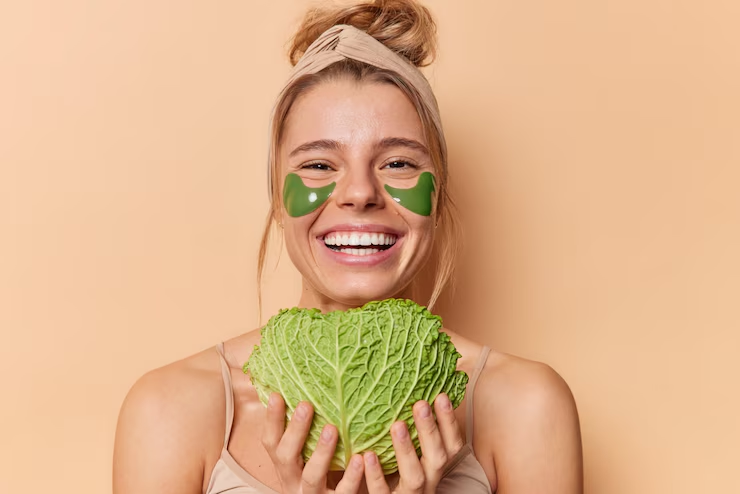
Diversity in Food Choices is Essential: A well-rounded skin cancer prevention diet should include a wide range of antioxidant-rich foods. Different antioxidants play unique roles and often work better together. One type of antioxidant may even help restore the function of another, creating a stronger overall effect in protecting skin cells from sun-related damage.
Prioritize Whole Foods Over Isolated Supplements: Whole foods offer more than just nutrients—they provide fiber, enzymes, and natural cofactors that help the body absorb and use those nutrients effectively. In contrast, high-dose supplements may lack these supportive elements and sometimes carry risks. For instance, beta-carotene supplements have not shown consistent protective benefits and may increase health risks for smokers, making whole foods the better choice for a skin cancer prevention diet.
Combine with Safe Sun Habits for Best Results: Although a nutrient-rich diet can support skin health, it should never be viewed as a replacement for traditional sun protection. A proper skin cancer prevention diet must be paired with daily use of broad-spectrum sunscreen (SPF 30 or higher), wearing protective clothing, avoiding sun exposure during peak hours, and scheduling regular skin exams to monitor for early signs of skin damage.
Embrace a Mediterranean-Inspired Eating Pattern: The Mediterranean diet, rich in fresh vegetables, fruits, whole grains, nuts, olive oil, and fatty fish, aligns well with the goals of a skin cancer prevention diet. This dietary pattern has been linked to reduced risks of cancer and overall mortality, and may offer added protection for people living in areas with strong, year-round sun exposure.
Select High-Quality, Sustainably Sourced Foods: For optimal health benefits, choose organic produce whenever possible—especially when consuming items like carrots and berries, which are often high in pesticides. Opt for wild-caught fish, which tends to be richer in protective compounds such as astaxanthin and lower in harmful contaminants. Prioritizing fresh, whole, and minimally processed foods enhances the protective value of a skin cancer prevention diet.
Practice Long-Term Consistency in Eating Habits: The protective effects of a skin cancer prevention diet build gradually over time. Regular, daily intake of skin-supportive foods is far more effective than occasionally eating large amounts. Consistency helps maintain strong cellular defenses, promotes ongoing skin repair, and builds resilience against long-term UV damage.
🌿 Bonus: Additional Anti‑Cancer Phytonutrients
While the top 8 foods cover most bases, consider including:
Mushrooms (shiitake, maitake): provide ergothioneine, selenium, and polysaccharides with anti‑angiogenic and immune‑supporting action
Garlic and onions: allicin supports detoxification pathways and modulates inflammation
Red grapes or red wine (in moderation): contain resveratrol, another anti‑angiogenic polyphenol; but note moderation and pairing with other foods
🎯 Implementation Tips
Start small: Add a serving of berries to breakfast, replace butter with olive oil, or snack on nuts.
Be creative: Turn tomato paste into sauces, roast veggies, blend greens into smoothies.
Season smart: Use turmeric, garlic, rosemary—these spices add both flavor and antioxidant perks.
Eat the rainbow regularly: Orange, red, green, blue—variety covers more nutrient bases.
Conclusion

Adopting a skin cancer prevention diet is a powerful step toward supporting your skin’s natural defense mechanisms from within. By incorporating nutrient-dense foods like carrots, tomatoes, fatty fish, berries, and cruciferous vegetables into your daily meals, you supply your body with antioxidants and anti-inflammatory compounds that can help reduce UV-induced damage.
While no food can replace the need for sunscreen or regular skin check-ups, combining these sun-protective foods with smart lifestyle choices creates a well-rounded approach to skin health. A diet rich in whole, colorful plant-based ingredients not only nourishes the skin but also promotes overall wellness.
Ultimately, consistency is key. Making the skin cancer prevention diet part of your regular routine helps build long-term resilience against environmental stressors. With mindful eating and conscious sun protection, you’re investing in healthier skin—and a healthier life

